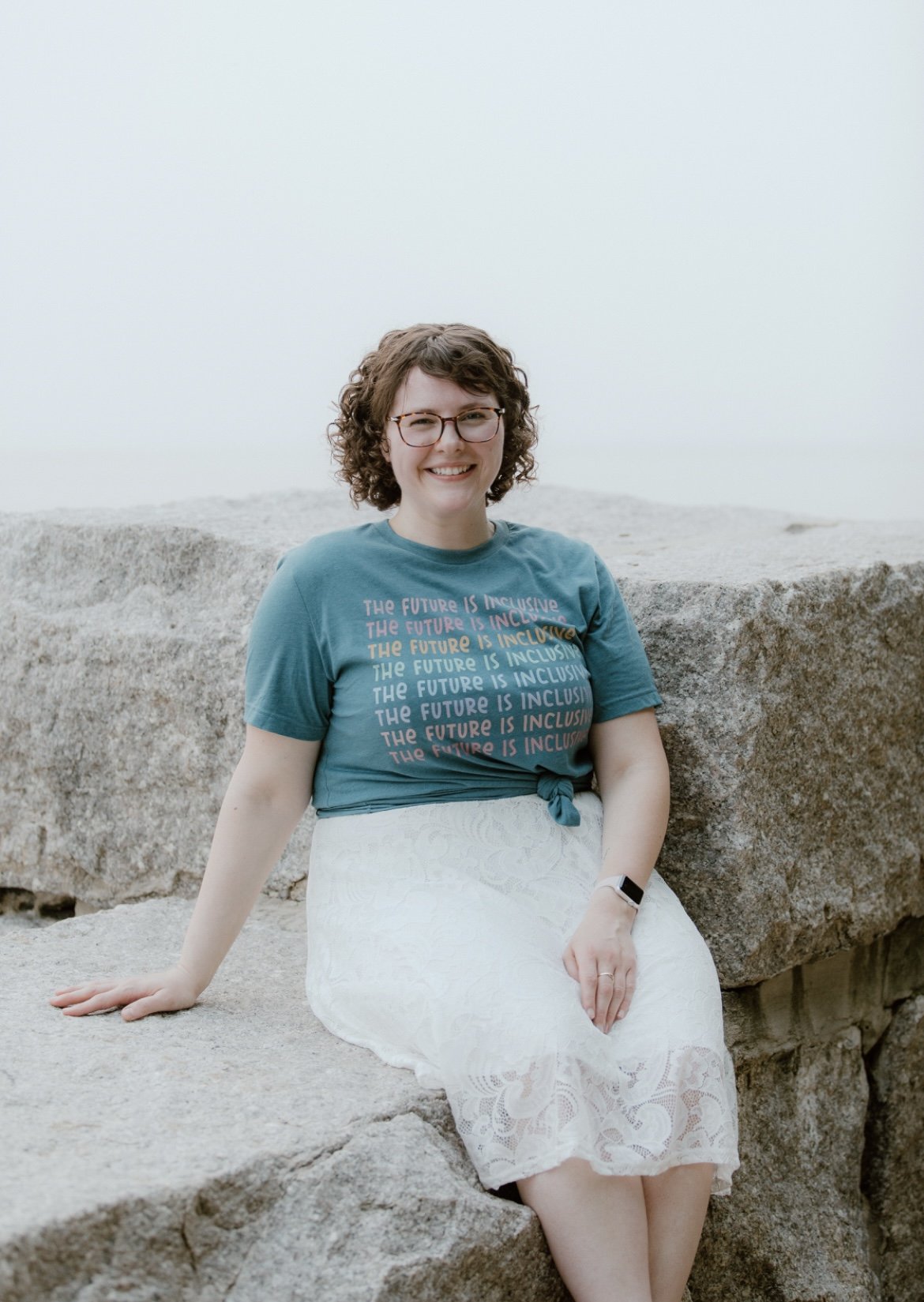Feminist activist feature: Kelly, @DisabilityInsight
Portrait of Kelly smiling, she is a the creator of @DisabilityInsights, a social media educational resource helping others understand how to know better to do better for the disabled community.
Kelly, creator of @DisabilityInsight on Instagram, seeks to dismantle ableism and create meaningful conversations surrounding the disabled community through resource guides and commentaries.
FEMINIST interviewed the activist and resource creator in light of Disability Awareness Month and her continued advocacy work for disability rights. Learn about her activism journey and what disability rights, education, and liberation means to her. →
Q: What was your inspiration behind @disabilityinsight?
K: I grew up with two legally blind sisters, and have witnessed the depths of discrimination from watching them endure various discrimination my entire life. I now challenge this passion of wanting to create a more inclusive and just world for the disabled community in every way possible, so I wanted to to utilize the space I had on here to do good. In short, I saw Instagram as a way to reach people and connect with them, and hopefully to dismantle the ableism they’ve been conditioned to believe.
Q: From your perspective, how is disability education and intersectional feminism intertwined?
K: The disabled experience and feminism are actually closely related quite a bit. To me, one of the most prevalent ways is that those who do not identify with either community are stern in their ignorance regarding injustices and inequality. There is an overwhelming need for these movements and communities to be listened to, believed, and learned from.
Q: When coming up with a topic for @disabilityinsight do you draw on personal experiences and knowledge? How do you address public misconceptions or misinformation in your approach?
K: Yes! I use personal experiences and knowledge quite a bit, especially when explaining why various examples of ableism are problematic. Ableism is complex, and most people aren’t even aware they are engaging in it. If someone misunderstands my messages, it is always worth addressing, talking about it, and breaking it down so they understand. Ableism will never end if we do not identify and talk about it, honestly and openly.
Q: Why is a resource like @disabilityinsight so important when engaging in conversations about the disabled community?
K: I don’t like to boast, but I think my account is important because I reach allies and show them very “normal”, very “easy” ways they can do better for the disabled community. I show them things they are likely doing that they shouldn’t be, and explain to them why they should stop. I have created a little community in my little corner of the internet with a bunch of people who want to make the world a little better, and I am endlessly grateful for them.
Image of Kelly smiling and sitting atop a boulder wearing a blue marine colored tee shirt with the statement “The future is inclusive” written across it multiple times in many different colors.
“Stop saying “special needs” when you mean to say “disabled” — Kelly of @DisabilityInsight
“The ADA isn’t some optional moral guideline. It’s federal law.” - Kelly of @DisabilityInsight
Q: Do you feel that disability justice and awareness is connected to liberation for all? If so, how so?
K: Without a doubt, yes. The disabled community is the biggest minority in the world. Sta- tistically speaking, most of us will become disabled at some point or another - and also, it’s a community we can find ourselves apart of very suddenly and randomly. There is no equality, and justice for society without equality and justice the disabled persons.
Q: What advice would you give to those who want to learn more about ways they can be an ally to the disabled community?
K: First and foremost, as always, the best way to do this is to listen and learn from the dis- abled community. Read books like No Pity, and Disability Visibility. Watch films like Crip Camp. Learn about disability history. Support disabled workers. Follow disabled ad- vocates on social media who are willing to share their stories and teach. Realize that your scope of understanding life is limited to your own experience, and that it is different for other people. Be committed. Don’t be scared to care about others.
Q: What do you hope to achieve through your activism work? What does the future of the disability rights, justice, and education surrounding the movement look like to you?
K: Ultimately, the only thing I want to achieve with DisabilityInsight is to plant seeds of disability being normal in minds that otherwise think it is abnormal. If I can spark compassion in just one person towards the disabled community, or show someone their beliefs and opinions are wrong, then my account is a success. In a perfect word, the future will be inclusive, accessible, just, and kind. And I do believe that we will get there.
Q: What does intersectional feminism mean to you?
K: To me, intersectional feminism means the ways in which the depths of injustice and ex- clusion impact communities of different social identities in different ways. It is the only way our society can truly, genuinely dismantle discrimination - we must accept it, and work together as a human race to do better, leaving no one behind.





